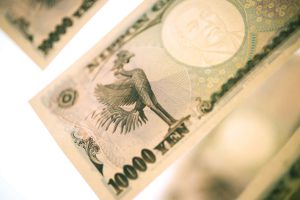BLOOMBERG
Traders are piling into fresh bets against the yen, triggering pushback from Japanese authorities who are threatening once again to take action including the possibility of currency intervention.
The yen edged away from a year-to-date low on Wednesday after Masato Kanda, Japan’s top currency official at the finance ministry, said authorities are ready to act if needed.
“We’re on standby,” Kanda told reporters, echoing language he used a year ago on the day Japan made the first of three forays into the market. “But I can’t say what we’ll do, and when — we’ll make judgments overall, and we’re making judgments in a state of urgency.” The currency posted its biggest one-day drop since April after the Bank of Japan’s underwhelming tweak to its cap on bond yields suggested any move away from ultra-loose policy would be slow and gradual.
The yen strengthened after Kanda’s and held a gain of about 0.3% at 151.27 per dollar in Tokyo.
Despite Wednesday’s intraday relief for the yen, its longer-term slide towards 152 has the currency around the threshold that a year ago drove Japanese authorities to swoop in to prop it up. The movement of well over two yen in less than a day fits in with the extent of volatility that triggered Japan to spend more than $60 billion buying the currency in markets last year. The yen also weakened to the lowest since 2008 against the euro on Tuesday.
“We’re very concerned about one-sided, sudden moves in currencies,” Kanda said in the morning. “Fundamentals don’t move several yen in one night.”
He followed up with second round of comments around midday in which he said speculation had been the biggest factor in recent moves in the currency.
Finance ministry figures released showed no money was spent on intervention in the currency market between September 28 and October 27.
The period includes October 3, when the yen’s decline to 150.16 suddenly reversed to 147.43, a move that had sparked discussion in markets that Japan may have intervened. Meanwhile, Japanese government bond yields were edging higher on Wednesday, while their US counterparts were fractionally lower, giving mild support to the yen. While the central bank announced an unscheduled bond-purchase operation in the afternoon to tamp down yields, it had only minimal impact in the debt and currency markets.
Traders were showing little fear that Japan will start buying the yen to halt its slide. Speculative US dollar calls pointed to mounting wagers on the yen’s weakness, while leveraged funds were seen adding to shorts following the BOJ meeting.
 The Gulf Time Newspaper One of the finest business newspapers in the UAE brought to you by our professional writers and editors.
The Gulf Time Newspaper One of the finest business newspapers in the UAE brought to you by our professional writers and editors.
